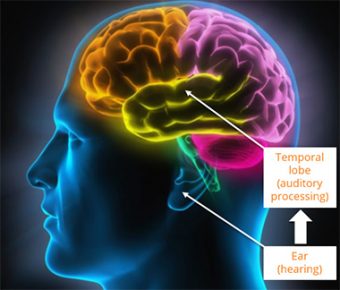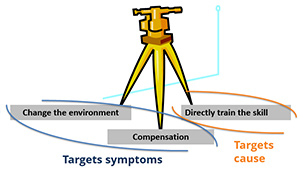“He’s smart. He just needs to try harder.”
“She’s a selective listener. She listens when she wants to”
Take listening problems seriously.
Children do not choose to have poor listening skills. These children just have trouble processing what they hear so they zone out. It’s a problem in the classroom, since most classroom instruction is verbal.
Auditory processing (listening) problems aren’t related to IQ, and students do not grow out of it. Just as a child with vision problems needs glasses, it’s important that students with auditory processing difficulties receive evidence-based, auditory training.
Through exercises carefully designed by learning experts the Fast ForWord programs improve auditory processing accuracy and speed, enabling the brain to “hear” the correct words and process them quickly enough to remember the information.
At the same time, Fast ForWord improves the underlying skills of and language, giving the student the tools needed to learn and show what they have learned.
What is Auditory Processing Disorder?
What is the difference between hearing and auditory processing?
 Hearing is when your ear collects sound.
Hearing is when your ear collects sound.
Your ear then sends the sound to the brain.
Auditory processing is when your brain perceives and uses the sound. It’s “what we do with what we hear”.
Auditory processing is difficult and uses a lot more brain cells than hearing.
What is Auditory Processing Disorder?
A person can have good hearing (their ears are sending the sound to their brain) but poor auditory processing (their brain doesn’t match up the sounds properly).
Have you ever had a conversation with someone but not really “heard” (or processed) what they said? Maybe you asked them to repeat themselves. It happens to all of us sometimes but for some students this is happening constantly in the classroom. Can you imagine trying to pay attention and learn all day with this problem?
What causes Auditory Processing Disorder?
There is no one clear cause of APD, although a number of factors could be involved, including genetics and ear infections/glue ear as a small child – it’s very common for young children to have middle ear problems that go unnoticed.
What are the symptoms of Auditory Processing Disorder?
Usually, students with an Auditory Processing Disorder will forget instructions, misunderstand what has been said, be slow to respond or drift off/tune out. They are intelligent students but may struggle in many subjects because of their listening difficulties, and they usually have trouble getting their thoughts onto paper.
What about Auditory Processing Disorder treatments?
 Good Auditory Processing Disorder treatment uses a 3-pronged approach:
Good Auditory Processing Disorder treatment uses a 3-pronged approach:
- Compensate for the problem by repeating instructions, providing visual materials, and checking for understanding.
- Change the environment. Make learning environments easier for listening. Sit the child at the front of the class, install a sound amplification system, or reduce the amount of background noise when you are speaking.
- Most important: directly train auditory processing skills. Compensating and changing the environment will make things a little easier but they will not fix the auditory processing problem. The brain must be re-trained to process sound correctly and quickly. the Fast ForWord program is proven to improve auditory processing and change the brain, re-wiring it for listening.